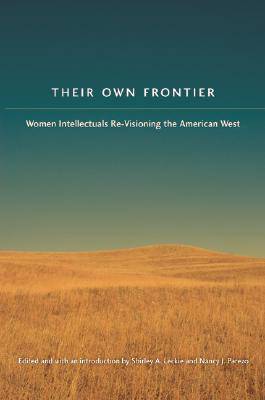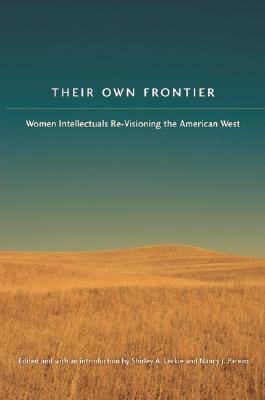
- Retrait gratuit dans votre magasin Club
- 7.000.000 titres dans notre catalogue
- Payer en toute sécurité
- Toujours un magasin près de chez vous
- Retrait gratuit dans votre magasin Club
- 7.000.000 titres dans notre catalogue
- Payer en toute sécurité
- Toujours un magasin près de chez vous
Their Own Frontier
Women Intellectuals Re-Visioning the American West
33,95 €
+ 67 points
Description
The writings of the American West have long dealt with masculine ideals. Well into the twentieth century, what little attention was afforded to women typically reflected prescribed or stereotyped roles, and the work of women scholars received less attention than that of men. And yet the early twentieth century saw a host of pioneering scholars who would not be ignored, erased, or marginalized. The ten women intellectuals showcased in this volume were pioneers in the writing of Indian-centered history, ethnology, and folklore that incorporated the insights, voices, and perspectives of American Indians. These authors not only produced significant works that are still useful to modern-day scholars; they also pioneered research methods and theoretical concepts that helped lay the foundation for the new scholarship on western history, American Indian studies, and ethnohistory. Noted scholars have provided individual biographies describing the struggles and contributions these foremothers made to the creation of late twentieth-century scholarship: Annie Heloise Abel, Gertrude Simmons Bonnin (Zitkala-Sa), Angie Debo, Ella Cara Deloria, Isabel T. Kelly, Marjorie Ferguson Lambert, Dorothea Cross Leighton, Alice Marriott, Mari Sandoz, and Ruth Underhill. Shirley A. Leckie is a professor emerita of history at the University of Central Florida. She is the author of several books, including Angie Debo: Pioneer Historian and Elizabeth Bacon Custer and the Making of a Myth. Nancy J. Parezo is a professor of American Indian studies and anthropology at the University of Arizona and the curator of ethnology at the Arizona State Museum. She is the editor of Hidden Scholars: Women Anthropologists and the Native American Southwest and the coauthor of Anthropology Goes to the Fair: The 1904 Louisiana Purchase Exposition (Nebraska 2007).
Spécifications
Parties prenantes
- Editeur:
Contenu
- Nombre de pages :
- 414
- Langue:
- Anglais
- Collection :
Caractéristiques
- EAN:
- 9780803229587
- Date de parution :
- 01-07-08
- Format:
- Livre broché
- Format numérique:
- Trade paperback (VS)
- Dimensions :
- 154 mm x 227 mm
- Poids :
- 562 g






